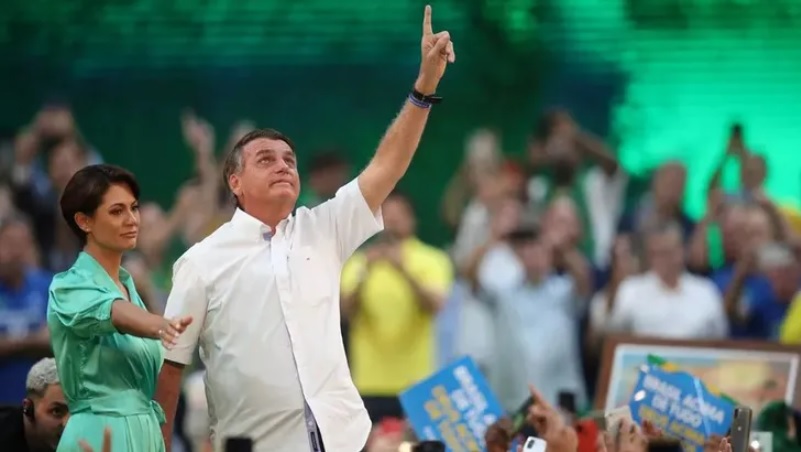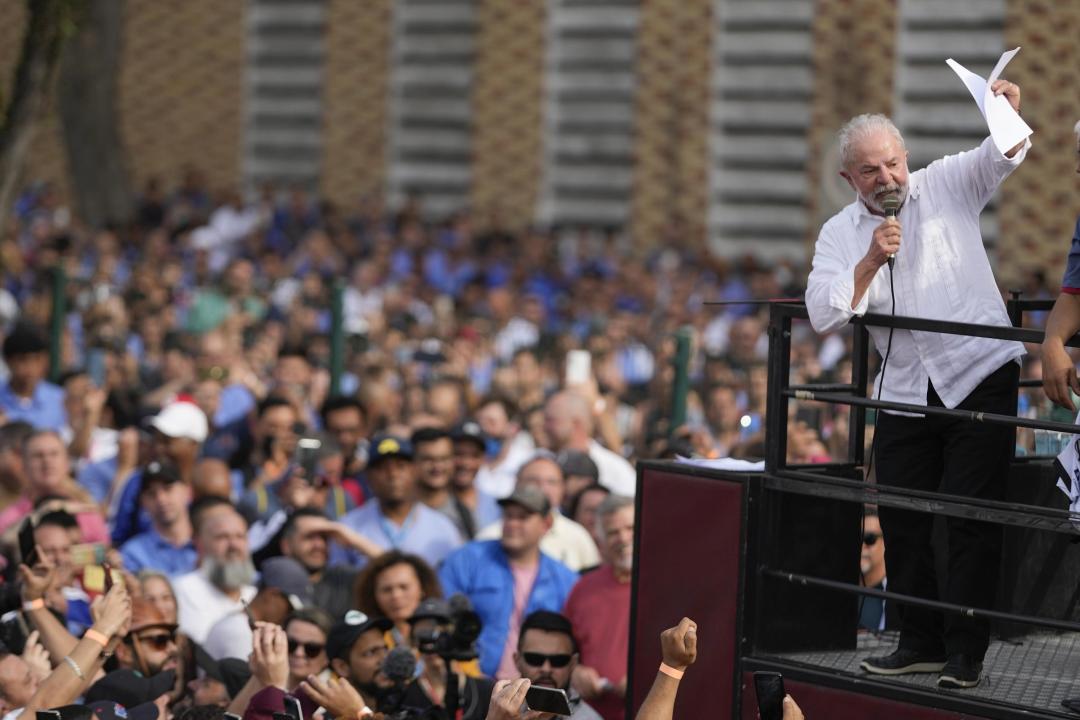Brazil entered the countdown to the general elections on October 2 with the official launch of the electoral campaigns, in acts with strong symbolic content in which the main candidates President Jair Bolsonaro and the former president Luiz Inacio Lula da Silvashowed a high voltage accusations that exhibits the ironclad polarization of the lawsuit.
According to the latest survey of the consultancy Ipec, the extreme right Bolsonaro, of the Liberal Party, can lose in the first round by 52 to 35% against Lulaof the leftist Workers’ Party (PT), a fact for which the head of state has adopted a profile to try to capture the evangelical electorate, also the poorest in the country, with an agenda of customs and religion.
Bolsonaro bets on a religious campaign
Bolsonaro opened his campaign in Juiz de Fora, Minas Geraiswhere in 2018 he was stabbed, where he said he was “reborn”, while Lula did it in his political and trade union cradle, in front of a factory in Sao Bernardo do Campo, Greater São Paulo: the common denominator was that both chose the southeast region, the most populated in the country and key to seeking votes at wholesale levels.
Bolsonaro encouraged a war between “good against evil” and raised the ghost about the risk of closing churches and temples if Lula wins.
The call was surrounded by religious contentjust when deputy Marco Feliciano, an evangelical Bolsonaro pastor, is at the center of the controversy because he said that in the event of Lula’s victory, temples and churches will begin to be closed.

Over there Michelle Bolsonarohis wife, prayed the Our Father, after affirming that it is a “universal prayer”, and was cheered even more than the president-candidate. “She is more important than me” for the campaign, said the former Army captain.
“We know about the fight of good against evil. We defend absolute freedom, if someone is offended they go to justice, but we cannot create laws like the one for fake news,” he said. the president when criticizing the project that sanctions those who spread lies and set up operations against third parties based on false data.
Lula returned to the bases of his union struggle
Lula, for his part, tried to open the door of a factory from the southern area of São Paulo his campaign but the streets were so narrow that the Federal Police determined that there was not enough security before a possible attack, according to the central Sindical Force.
Then, the first act of the campaign was in front of the Volkswagen plant in Sao Bernardo do CampoGreater Saint Paul, where Lula was moved at 76 years of age to return to the same stage where at the beginning of his union career he led the strikes against the dictatorship to speak from the top of a truck to the workers.
Lula He spoke about economics but was also in charge of responding to provocations about religion launched by the president.
Former president and opposition presidential candidate Luiz Inácio Lula da Silva promised to raise the non-taxable income tax minimuman old trade union demand and He described Bolsonaro as “a true demon” for trying to politically manipulate the faithful evangelists, who represent 30% of the electorate.

“The is trying to manipulate the good faith of evangelical men and women who go to church to talk about faith and spirituality and he what he does is tell them lies about Lulaabout Lula’s wife, about the workers, about the indigenous people and Afro-descendants,” said the former president in his speech.
“If there is someone possessed by the devil, that is Bolsonaro,” he said.after qualifying it as “a creator of lies and a denier” that “he did not shed a tear for the orphans left by the pandemic”, with more than 670,000 deaths and a current average since July of 200 daily deaths from Covid-19.
Lula He described Bolsonaro as “genocidal” and said that in Brazil “you have to distribute books instead of weapons.”

Lula was registered as a candidate in 2018, but was banned by the electoral justice system upon being arrested and convicted of corruption by former judge Sérgio Moro, something that allowed Bolsonaro’s victory.
in 2021 the Federal Supreme Court annulled the sentences and cases for partiality of Lava Jato, an operation that the PT described as «lawfare».
To comment on this note you must have your digital access.
Subscribe to add your opinion!
Subscribe
The electoral campaign began in Brazil: extreme polarization and high discursive voltage
